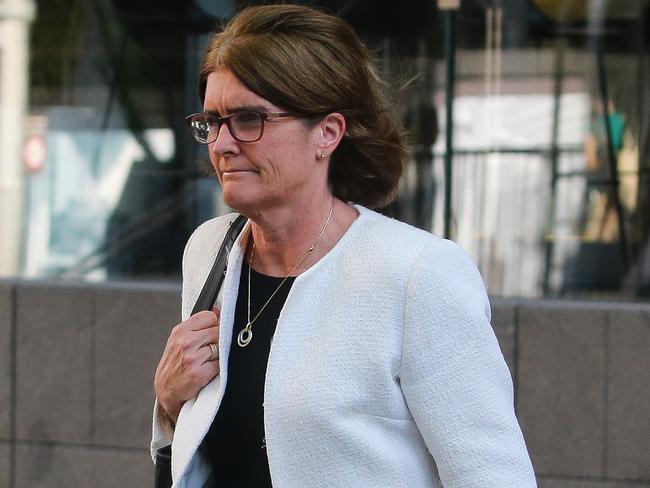John Rolfe: Michelle Bullock has missed the mark with her rates reasoning
Of course Michele Bullock wants you to think the RBA can and will crush inflation. But if the main causes are foreign and supply-driven, it can’t, writes John Rolfe.
Opinion
Don't miss out on the headlines from Opinion. Followed categories will be added to My News.
Of course Michele Bullock wants you to think the RBA can and will crush inflation. But if the main causes are foreign and supply-driven, it can’t.
To support her narrative that the Reserve Bank of Australia “will do what is necessary” to slow price rises to an acceptable pace by mid 2025, the new Governor is prepared to twist the facts.
In a statement announcing the 13th rate rise since May last year, Ms Bullock said the latest consumer price index “indicates that while goods price inflation has eased further, the prices of many services are continuing to rise briskly”.
Right, so the problem is services, not goods?
Incorrect.
Ms Bullock’s remark is bizarre and a false comparison.
It would have been equally true to have switched the positions of the words ‘goods’ and ‘services’ in what she wrote.

The truth is that the single biggest contributor to the surprise Consumer Price Index result in the September quarter was petrol.
The sharp increase in the cost of fuel had nothing to do with demand in Australia. It had everything to do with supply internationally.
What the CPI actually showed was that inflation for goods as a whole was down and that inflation for services as a whole was down.
The Australian Bureau of Statistics, which compiled the figures, noted that “annual services inflation eased for the first time since December 2021”.
Deloitte Access Economics partner Stephen Smith said “with a slowing economy, supply-driven inflation, a more volatile geopolitical and global economic outlook, and past rate rises still to take full effect, mortgage holders and businesses seeking capital to invest will pay the price.

“Although the September quarter consumer price index … came in slightly above consensus forecasts, there isn’t enough evidence to suggest the uptick in inflation is here to stay or that lifting interest rates is the right way to fix the problem.”
Dr Jim Chalmers hadn’t helped the situation.
After the CPI came in above forecasts last month, the Treasurer – whose doctorate is in political science and international relations – said the RBA “looks for material changes in the inflation outlook.”
The RBA “will obviously assess these numbers in their own way, but what we’ve seen today is consistent with our expectations. It doesn’t materially change the inflation outlook going forward,” Dr Chalmers said.
So imagine you’re Ms Bullock, preparing to lead just your second RBA board meeting.
If you go against the predictions of many leading economists and instead adopt the view of Dr Chalmers, the perception created is that you are soft touch and that Canberra is calling the shots at Martin Place.
So up go your mortgage repayments. Will you drive your car less as a result?





